 |
| NuLu Fest |
Saturday marked the 5th annual NuLu fest on East Market
street, where I grew up. Back then it was called The East Market Street
District. the neighborhood has obviously has changed a lot. as a child we lived next the Muth's candy store. After school I would go to the neighborhood Boys and Girls
Club until it closed down, after that the women at Muth's would keep an eye on
me while my dad worked. He had a small shop on the street making stained glass
windows. Many of the neighborhood children's parents had small businesses on
the block or booths at the Hay Market (also on Market Street). Today Muth's is
all that's left of my childhood. The neighborhood doesn't even have the same
name it used to.
Now, and sometimes reluctantly, it's called Nulu, a portmanteau of the words New and Louisville, even tho its one of the oldest neighborhoods in the city. The buildings are all still there but it is a different neighborhood. Don't get me wrong, I am very thankful there is interest in keeping the neighborhood alive, but it's a bitter pill. The neighborhood was in trouble when I was young. So many people moved south and east and the business went with it. The final nail was probably when the Hay Market, open since the 1800s closed in the 1980s. many of my friends had to move out. but there was a push to keep the neighborhood alive, mostly through people like Billy Hertz and Tom Schneff and others who opened new shops on Market street in the late 80s and early 90s like Gallerie Hertz, Kathryn's and Kathryn's, Kim's, and Zephyr Gallery. It worked. By the early 90s my family had to move further back into Butchertown as the rents rose. First we moved to Washington Street and then to Franklin where my Dad still lives. Butchertown was an amazing place to grow up. It wasn't as vacant as Market street, and it held many of the values we now look for in a neighborhood. It had many businesses and had people from a wide socioeconomic variety. People could live, work and go to school all in the same neighborhood.
In the last 10 years or so, with the help of Gill Holland, many new people have moved into the area. Of the block my dad lives on, only 3 original families are still there. I finally had to move off of Main Street, where i had been for 7 years due to the skyrocketing rent. The truth is the Main and Market street areas did need help but the collateral damage was that many of the families who grew up there and the existing businesses couldn't compete with the rising costs and new interests. The Wesley House community center on Washington Street that among other things gave childcare to the neighborhood working families and had been there for over 100 years had to follow those working families to the south end and the Wesley House Building is now upscale Condos. It all heated up when Gill Holland bought a 120 year old building in 2006 (was the Sternau's Building, now called The Green Building) and spearheaded the scaling up of the neighborhood. The original residents saw what was happening but didn't know what to do about it. Called "The Maestro of East Market Street" (no joke, it's in this WHAS article), Gill Holland has now bought a 160 year old building (the Montgomery Street School building, now being called The Compassion Building) in the Portland Neighborhood and is now set on "revitalizing" that neighborhood. The WHAS article says Holland wants to see people buy houses instead of rent them. but in an area where it's existing population are of low income, like Butchertown and East Market was, the renters are pushed out. the article starts "Its crime rate is high. Many of its buildings and homes are vacant or falling apart. So why is one of the city's most successful entrepreneurs packing up everything and moving to the Portland neighborhood?" This could be said of the East Market Street Neighborhood just a few years ago. A new business owner in Butchertown told me he thought of the revitalization there was "white flight correcting it's self." but you can't condemn a population that's already there because the people with business and money abandoned you and then later want to force you out once the property value has plummeted. I'd hate to see the history (and name) of Portland lost like my old neighborhood. There has got to a middle ground. there has got to be a way to empower the local community that is already there, help them open businesses and buy their homes and in the process lower crime without displacing them for people who already have the means.
Now, and sometimes reluctantly, it's called Nulu, a portmanteau of the words New and Louisville, even tho its one of the oldest neighborhoods in the city. The buildings are all still there but it is a different neighborhood. Don't get me wrong, I am very thankful there is interest in keeping the neighborhood alive, but it's a bitter pill. The neighborhood was in trouble when I was young. So many people moved south and east and the business went with it. The final nail was probably when the Hay Market, open since the 1800s closed in the 1980s. many of my friends had to move out. but there was a push to keep the neighborhood alive, mostly through people like Billy Hertz and Tom Schneff and others who opened new shops on Market street in the late 80s and early 90s like Gallerie Hertz, Kathryn's and Kathryn's, Kim's, and Zephyr Gallery. It worked. By the early 90s my family had to move further back into Butchertown as the rents rose. First we moved to Washington Street and then to Franklin where my Dad still lives. Butchertown was an amazing place to grow up. It wasn't as vacant as Market street, and it held many of the values we now look for in a neighborhood. It had many businesses and had people from a wide socioeconomic variety. People could live, work and go to school all in the same neighborhood.
In the last 10 years or so, with the help of Gill Holland, many new people have moved into the area. Of the block my dad lives on, only 3 original families are still there. I finally had to move off of Main Street, where i had been for 7 years due to the skyrocketing rent. The truth is the Main and Market street areas did need help but the collateral damage was that many of the families who grew up there and the existing businesses couldn't compete with the rising costs and new interests. The Wesley House community center on Washington Street that among other things gave childcare to the neighborhood working families and had been there for over 100 years had to follow those working families to the south end and the Wesley House Building is now upscale Condos. It all heated up when Gill Holland bought a 120 year old building in 2006 (was the Sternau's Building, now called The Green Building) and spearheaded the scaling up of the neighborhood. The original residents saw what was happening but didn't know what to do about it. Called "The Maestro of East Market Street" (no joke, it's in this WHAS article), Gill Holland has now bought a 160 year old building (the Montgomery Street School building, now being called The Compassion Building) in the Portland Neighborhood and is now set on "revitalizing" that neighborhood. The WHAS article says Holland wants to see people buy houses instead of rent them. but in an area where it's existing population are of low income, like Butchertown and East Market was, the renters are pushed out. the article starts "Its crime rate is high. Many of its buildings and homes are vacant or falling apart. So why is one of the city's most successful entrepreneurs packing up everything and moving to the Portland neighborhood?" This could be said of the East Market Street Neighborhood just a few years ago. A new business owner in Butchertown told me he thought of the revitalization there was "white flight correcting it's self." but you can't condemn a population that's already there because the people with business and money abandoned you and then later want to force you out once the property value has plummeted. I'd hate to see the history (and name) of Portland lost like my old neighborhood. There has got to a middle ground. there has got to be a way to empower the local community that is already there, help them open businesses and buy their homes and in the process lower crime without displacing them for people who already have the means.
Really, I don't mean to be a hater of what East market has become, I go there all the time. I just can't afford to live there now. I just really wish Holland and others could have put their money and efforts into helping and keeping it's existing residents there at the same time. and I really hope the people of Portland voice any concerns while NuPo is still in it's beginning stages. And don't let them change your neighborhood's name, with it will go your identity.




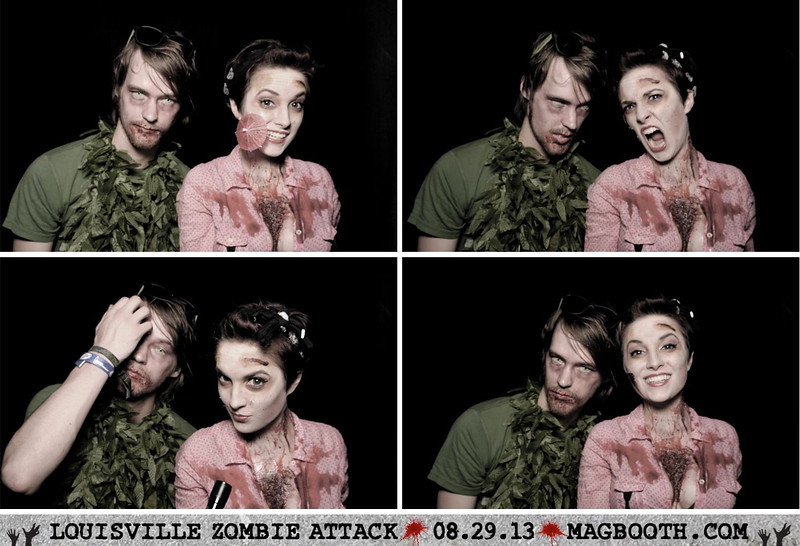
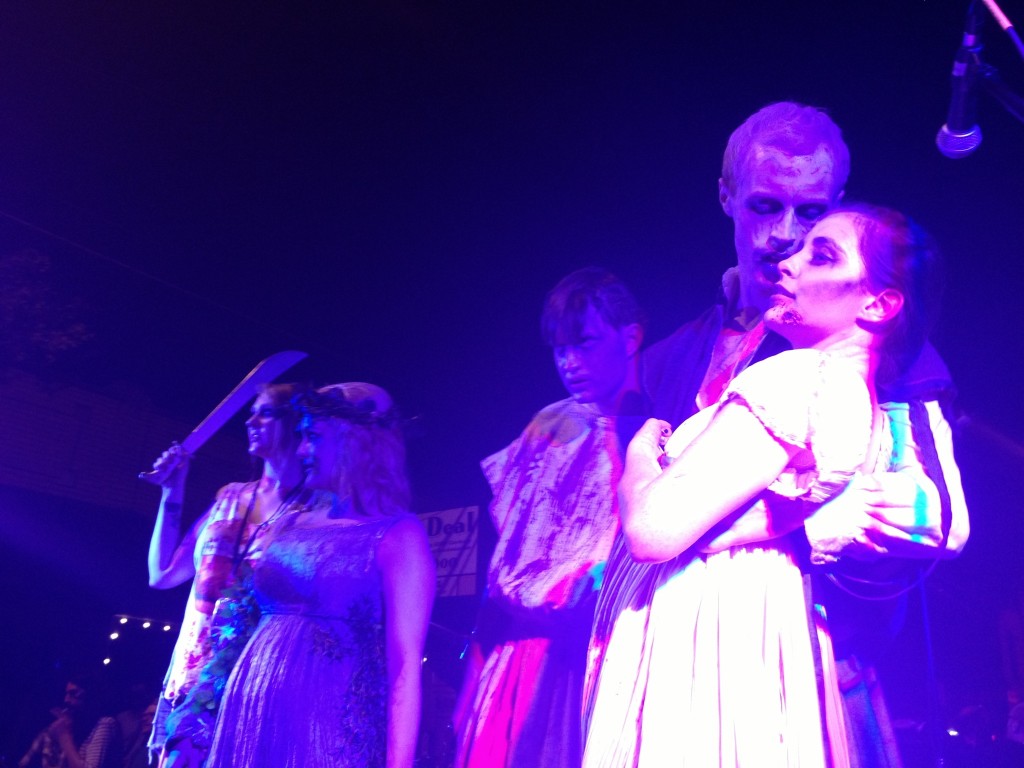
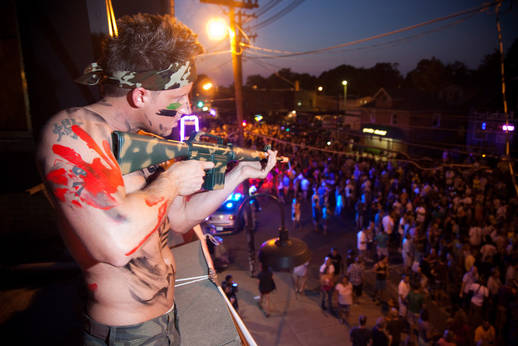
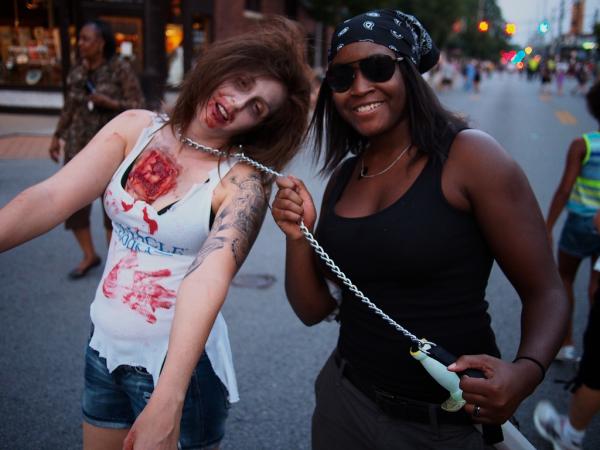
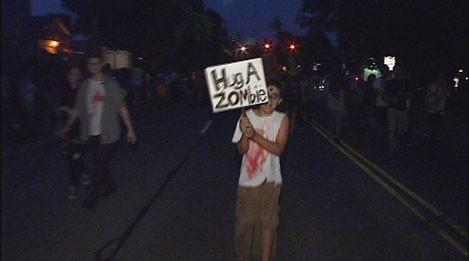
_album_cover.jpg)

